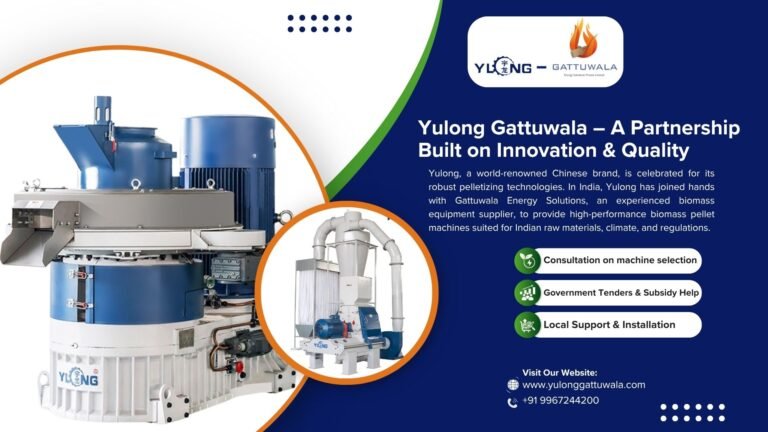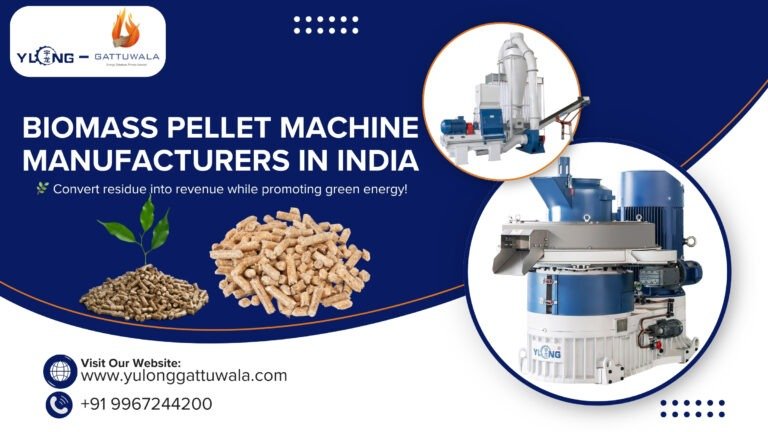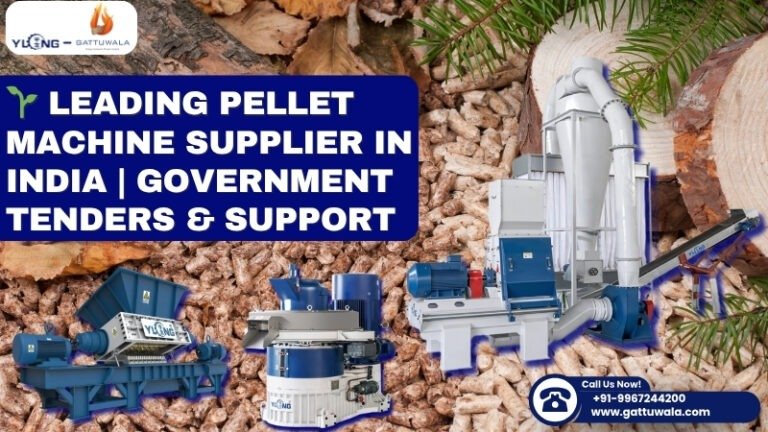- June 28, 2025
In today’s world, the focus on sustainability and renewable energy is stronger than ever. Among the many green technologies emerging, biomass pellets made from agricultural waste stand out as a powerful, eco-friendly solution. This innovative approach not only reduces the burden of agricultural waste but also provides a clean and efficient fuel source. In this article, we explore how converting agriculture waste to biomass pellets is paving the way toward a cleaner planet.
Agricultural waste includes materials like:
• Paddy straw
• Sugarcane bagasse
• Cotton stalks
• Wheat husk
• Groundnut shells
• Coconut shells
• Corn cobs
• Sawdust from agro-processing industries
These residues are typically discarded or burned in open fields, causing pollution. However, this waste holds immense potential when converted into biomass pellets — a high-density, renewable biofuel.
🔥 What Are Biomass Pellets?
Biomass pellets are compacted forms of organic material, usually cylindrical in shape and uniform in size. These pellets are made using biomass pellet machines, which compress the agricultural waste under high pressure without using any chemical binders. The end product is a clean-burning fuel with high energy efficiency.
♻️ How Is Agricultural Waste Converted Into Biomass Pellets?
The process involves the following steps:
- Collection: Agricultural residues are collected from farms and agro-industries.
- Drying: Moisture is reduced to below 15% using a flash dryer or rotary dryer.
- Grinding: A hammer mill is used to crush the waste into fine powder.
- Pelletizing: The powdered biomass is fed into a pellet machine, where it is compressed into pellets.
- Cooling & Packing: The hot pellets are cooled and packed for storage and transport.
Modern biomass pellet machine manufacturers in India offer advanced systems to carry out this process efficiently.
🌍 Environmental Benefits
Converting agricultural waste to biomass pellets helps address several environmental issues:
✅ Reduced Air Pollution
Burning stubble causes severe air pollution in states like Punjab and Haryana. Pelletizing this stubble reduces harmful emissions and improves air quality.
✅ Lower Carbon Footprint
Unlike fossil fuels, biomass pellets are carbon-neutral. The carbon released during combustion is offset by the carbon absorbed by plants during their growth cycle.
✅ Waste Management
This technology offers a sustainable way to manage waste that would otherwise be dumped or burned inefficiently.
💰 Economic Opportunities for Farmers
This technology brings an additional stream of income for farmers. Instead of burning crop residues, they can sell them to biomass pellet plants. This supports rural employment and strengthens local economies.
The Indian government is also supporting this transformation through:
• Subsidies for pellet machines
• Schemes promoting sustainable fuel use
• Government tenders to supply biomass pellets to power plants and industries
Pellet Machines: The Technology Behind the Transformation
Reliable pellet production depends on robust equipment. A biomass pellet machine manufacturer in India like Gattuwala Energy Solutions offers machines designed for high output and low maintenance.
Key Features of a Good Pellet Machine:
• High compression ratio
• Durable die and roller system
• Automated feeding and cooling
• Compatibility with a variety of raw materials
Indian suppliers have made it easier for industries and individuals to adopt pellet technology, offering machines listed on platforms like IndiaMART and TradeIndia.
🏭 Industrial Applications of Biomass Pellets
Biomass pellets are used in:
• Power Plants: For co-firing with coal, reducing emissions.
• Industrial Boilers: As a renewable replacement for diesel or furnace oil.
• Household Heating: In pellet stoves and boilers.
• Agro-based Industries: For drying crops, heating greenhouses, and cooking.
These applications prove that biomass pellets are not just a rural or small-scale solution — they can scale to meet the needs of large industries too.
🔮 The Road Ahead: Clean Energy for a Cleaner Planet
India’s energy future lies in sustainable innovation. Agricultural waste to biomass pellet technology is a prime example of how green thinking can power progress. With increasing environmental concerns, rising fuel prices, and strict emission norms, more industries are turning to biomass pellet fuel as a viable solution.
The government’s push toward renewable energy, combined with the growing network of pellet machine manufacturers and suppliers in India, is making this shift faster and more impactful.
Turning agricultural waste into biomass pellets is one of the smartest moves toward building a green economy. It not only combats pollution but also generates rural employment, reduces dependency on fossil fuels, and supports India’s sustainability goals. Whether you’re a farmer, entrepreneur, or policymaker, embracing this clean energy technology is a step forward — for both profit and the planet.





